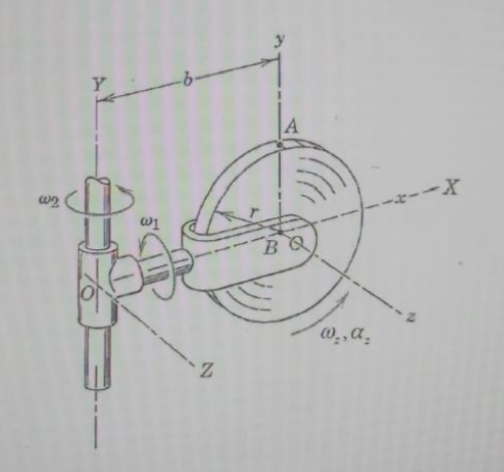I have a system determined by 3 Euler angles that describe the orientation with respect to a fixed coordinate system XYZ.
The angular velocities are: $\omega_2$ (precession), $\omega_1$ (nutation) and $\omega_z$ (spin). The angular acceleration of $\omega_z$ is $\alpha_z$. The other angular accelerations are 0.
How can I find the acceleration of a point (e.g. A on the spinning reference frame xyz)? I am looking for the procedure to follow.
